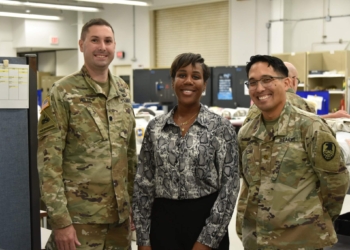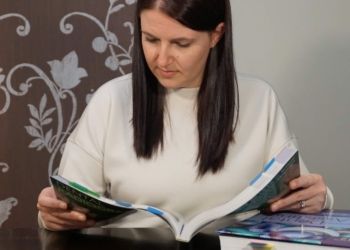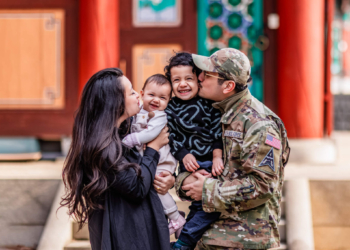The State Bar of California proposed a rule to aid military spouses in practicing within the state, although many people think it does not actually help.
In November 2018, the California State Bar Board of Trustees approved Rule 9.41.1 that allows military spouses, who are licensed in other jurisdictions, to practice law in California without taking the California Bar exam, if their spouse is stationed in the state. It’s a rule that was created to help ease the financial and timely burden of licensing each time a military spouse undergoes a Permanent Change of Station, possibly every two to three years.
However, military spouses must face strict registration and supervision requirements under Rule 9.41.1 that Elizabeth Jamison, immediate past president of Military Spouse JD Network, said negates the the usefulness it intended.
Jamison claims that there are three faults in the current rule: (1) military spouses are unable to accrue the required “time in practice” before they face another PCS; (2) The supervision requirements treat military spouses as interns, despite actual years in practice; and (3) Military spouses are forced to job hunt without an active license, which further burdens the likelihood of ever being hired.
“These are the kind of things that we need help with, and this is what we need from the state,” she said.
Katherine Goyette, current president of MSJDN, is also familiar with other state special admission rules for military spouses, which have successfully allowed her to practice law while following her husband from Kansas to Colorado and Tennessee.
“That is one of the most substantial barriers for those restrictions that have adopted rules,” Goyette said about the supervision requirements. “It just doesn’t make sense. Tennessee and Colorado are two great examples that don’t have that supervision. The minute I had that license, I was given files. I was representing clients. I wasn’t babysat. It is kind of a recognition that you’re competent to do that.”
The special admission rules for military spouses practicing law do not make exemptions for how attorneys can or are expected to practice law, but are intended to make it easier for spouses to gain work.
“We
want to be treated like fully license attorneys and have those continuing
education and ethical obligations,” Goyette said. “We’re still subject to those
requirements.”

Jamison understands that California has some of the strictest licensing guidelines in the United States, but does not feel that military spouse attorneys are a threat to the public, and thinks the rule is unrealistic for spouses to conform to.
“There are a lot of ways that the concern could be addressed without such strong language on the supervision,” she said. “We have done this in 33 other states and there has never been a competency or disciplinary issue.”
Kelly Bohne currently practices in California after undergoing the timely and expensive process of taking the bar exam. But when her family made a PCS to Maryland, which has similar supervision requirements like California’s, she had opted not to practice. When faced with having to start over in her career through establishing a network, finding a supervisor, or retaking the bar, she decided it wasn’t worth the stress.
“I won’t take another bar,” she said. “It’s too stressful. It’s too expensive. And when you get through the whole rigmarole, you’ve only got a year and a half, or maybe two years if you’re lucky, in one place to practice.”
The Department of Defense cites military spouse unemployment at 26 percent. Plus, while the Joining Forces measure under the Obama administration highlighted the licensing and credentialing challenges professional military spouses undergo, many gaps remain to make sure military spouses have a fair chance at obtaining work. Jamison said MSPN is working to fill those gaps one state at a time, especially with the State Bar of California.
Bohne understands first-hand how military families are put at a disadvantage, and knows these rules can be beneficial if put in place under the right criteria.
“At least these licensing rules can make it to where someone can at least have a little bit of a support system, so they are not starting from scratch every single move,” she said.
Military spouse attorneys wanting to get licensed in California will need to wait and see if the California Supreme Court accepts the proposed rule or not.
“We have submitted a letter expressing our concern with the proposal to the Court,” Jamison said. “Legislative action is an option, but that depends on what the Court does. We are hopeful that they are listening to our concerns.”
If you are a military spouse pursuing a career in law connect with MSJDN for resources and information on membership.
Read comments






































